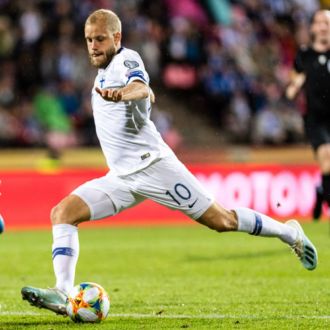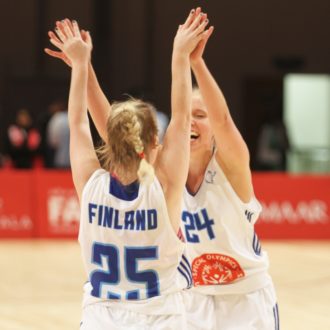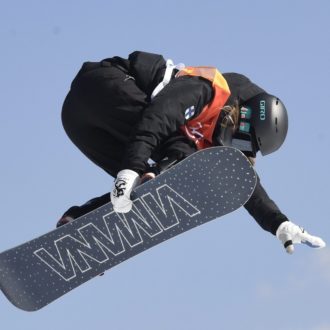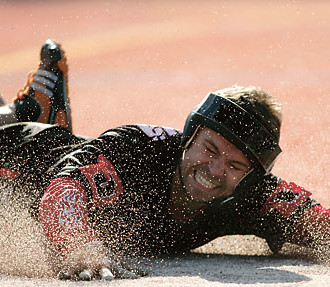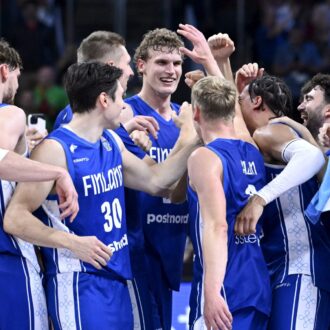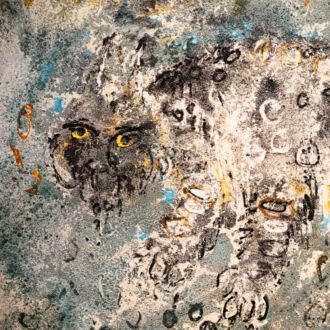A dream come true: That’s how footballer Linda Sällström describes the qualification of the Finnish national team for the UEFA Women’s Euro 2022 tournament in England.
Considering that she has suffered a string of injuries over her long career, it’s all the more remarkable that (at the time of writing in summer 2021) she is all-time top scorer for Finland’s women, with 48 goals in 107 international appearances. She’s chasing the national women’s record of 131 caps, held by Anna Westerlund. This will be Sällström’s second Euros tournament and she can’t wait.
A very even team
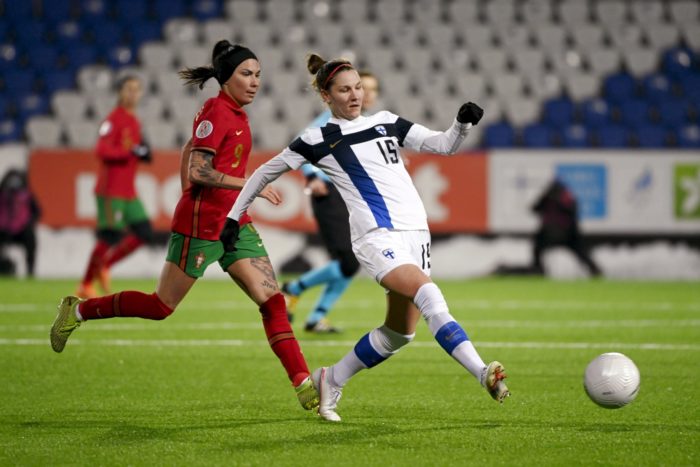
Natalia Kuikka (right) of Finland moves the ball past Ana Borges of Portugal during a Euro qualifier in Helsinki in February 2021. Photo: Emmi Korhonen/Lehtikuva
“I’m so happy that we qualified,” says Sällström. “It was our goal and ambition, and I’ve dreamed about it for a long time. It’s been fun to see the interest in the media in Finland, with the men’s team qualifying for this summer’s Euros for the first time and now with the women’s team in the tournament next year.”
The women’s national squad has qualified for the Euros three times previously, while the men’s national team had never qualified for a Euro tournament prior to the one held in 2021.
Sällström’s late winning goal in the penultimate qualifying game in Helsinki against Portugal guaranteed first place for Finland in the qualifying group. The 2020–21 season was her third with Paris FC in the highly competitive French women’s league, and she’s one of the most experienced members of the Finnish team. She namechecks Natalia Kuikka, a centre-back recently acquired by Portland in the National Women’s Soccer League in the US, and goalkeeper Tinja-Riikka Korpela, who plays for Everton in the English league, as important players, but Sällström is keen to emphasise Finland’s team spirit.
“Our strength is that we have a very even team, not just a few good individuals, and that we perform well as a group,” she says. “That makes it harder for the coach to pick a first-choice starting eleven.”
Proud achievement
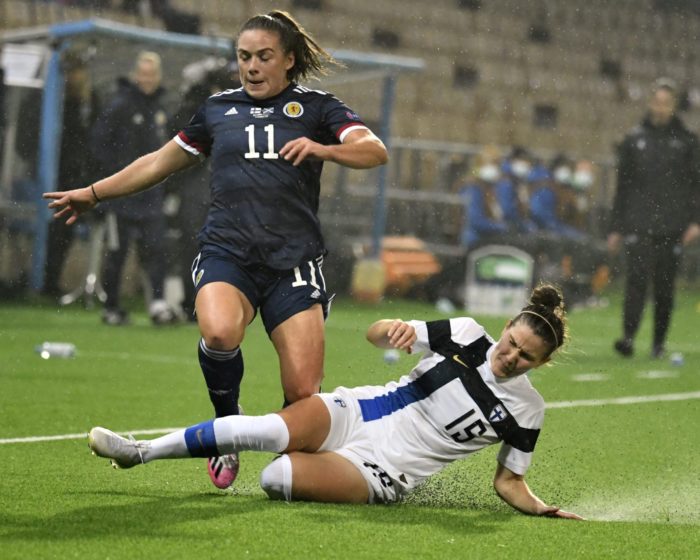
Finland’s Natalia Kuikka tackles Scotland’s Kirsty Hanson during Euro qualifier action in Helsinki in October 2020. Photo: Heikki Saukkomaa/Lehtikuva
That coach is Swedish one-time player and former coach of the Scottish national team Anna Signeul, and she is similarly excited at Finland’s success. “It feels fantastic on a couple of fronts for me,” she says.
“I’m so pleased for the players, the staff and the Football Association. The hard work, effort and commitment which have gone into qualifying have been tremendous. This has been an extraordinarily tough year. Many of the players who play abroad were unable to travel to see their families and loved ones, so I’m so pleased that there has been such a positive outcome to our campaign.
“This team have been amazing to work with – I’m so proud of what we have achieved together.”
Signeul’s recruitment had the specific aim of qualifying and can be viewed as one part of the Finnish Football Association’s renewed strategy to advance men’s and women’s football at all levels. The confidence of the women’s national team reflects that push for improvement.
“The players in Finland have a very big heart,” says the coach. “They work so hard for success. Every day they strive to be better than they were the previous day. They are so ambitious. That spirit of never giving up was very evident in our qualification campaign, where we scored goals on almost the last kick of the ball to win games.”
Ensuring the future
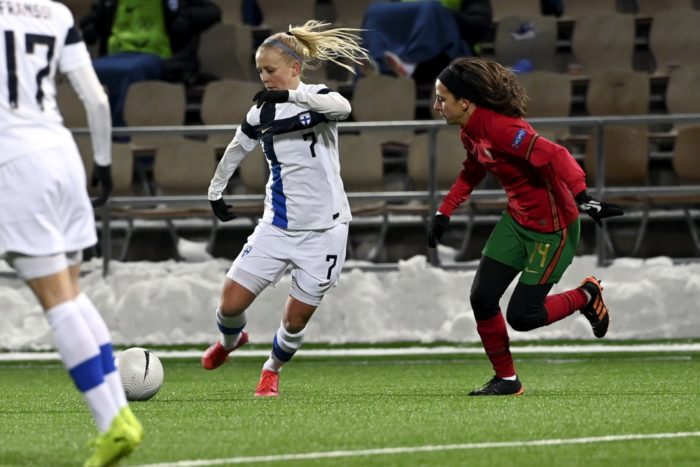
Adelina Engman controls the ball for Finland against Portugal in Helsinki in February 2021. Photo: Emmi Korhonen/Lehtikuva
However, there is always work to be done. “Finnish women’s football would compare favourably in relation to other nations in Europe and the world,” says Signeul. “But there are some areas where we need to focus to ensure a continuous pipeline of talented players.
“We need to continue to ensure quality opportunities for our most talented female players, and we need to ensure a joined-up approach between what is happening in the club game and the national teams. Strong competition at club level is the key for the game in Finland if we are going to make qualification for major finals tournaments part of our DNA in the future.”
In summer 2021, the men’s team and their own Euro adventure occupied the spotlight. Both men’s and women’s Euro championships are happening a year later than originally planned, as a consequence of the Covid-19 pandemic.
The men’s team has had the nickname Huuhkajat (meaning “eagle-owls”) since 2007, when an eagle-owl buzzed the pitch at Helsinki’s Olympic Stadium during a match against Belgium. As the men’s Euro tournament progressed in June and July 2021, the women’s team continued to prepare for summer 2022. They have their own nickname, too: Helmarit (“boreal owls”). Autumn 2021 also brings the first qualifier matches for the 2023 Women’s World Cup.
“The draw for the [Euro 2022] finals takes place in England in autumn, and when we know the teams in our group, we will sit down and create the goals for ourselves as a team,” says Signeul. “We’re looking forward to that.”
By Tim Bird, August 2021
